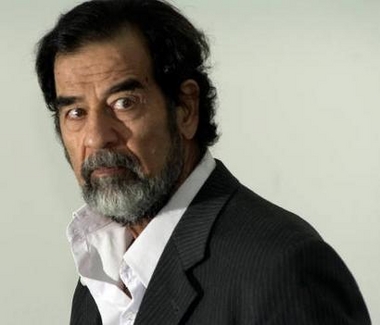|
Iraqi judges trained for Saddam trial
(AP)
Updated: 2005-10-12 08:33
The Iraqi judges who will try Saddam Hussein and seven members of his deposed
government next Wednesday in Baghdad received special training from American,
British and Australian experts, including a mock trial in London.
Saddam's trial, on charges that could lead to the execution of the fallen
Iraqi leader, will bear little resemblance to an American courtroom, according
to details provided Tuesday by U.S. officials.
There will be no jury. The chief judge — there will be three judges in all —
will question witnesses, many of whom he will have interviewed before the trial.
The judges will decide the guilt or innocence of Saddam and seven co-defendants.
The court and the training were financed by a $75 million U.S. budget
allocation in May 2004. That money, supplied over a year and a half, is also
being used to support investigations and prosecutions.
The defendants will appear before a Special Iraqi Tribunal on charges they
ordered the 1982 massacre of 143 people in Dujail, a mainly Shiite town north of
Baghdad, after a failed assassination attempt against Saddam.
There are allegations that 550 men, women and children were arrested without
warrants and that torture and killings followed.

A handout photograph released by the Iraqi
Special Tribunal on August 23, 2005, shows former Iraqi president Saddam
Hussein being questioned by Chief Investigative Judge Raid Juhi, at an
undisclosed location.[Reuters] | Under a civil law
system derived from French and Egyptian models, the familiar adversarial process
of prosecution and defense lawyers jousting for advantage and scoring points
with a jury will not occur.
Saddam will sit alone, probably behind protective glass. He will have the
right to call witnesses and, if convicted, to lodge numerous appeals before any
sentence could be carried out. If he is sentenced to death, he must be executed
within 30 days of the ruling on his last appeal.
This description of the trial was provided Tuesday by officials of the
National Security Council and the State Department, who declined to be
identified further because the trial is an Iraqi process.
Indeed, they insisted that despite the U.S., British and Australian technical
training, which included advice from Case Western Reserve University law
professors, the trial will be run entirely by Iraqi judges.
The judges were trained and educated in Iraqi law but were not familiar with
the humanitarian and war-crimes laws involved. That was the predominant area of
training provided by outsiders, the officials said.
Iraqi judges have also been trained in Jordan, Italy and The Netherlands.
The judges will be permitted to draw help from international advisers during
the trial. Reporters are expected to be permitted to attend, but no decision has
been announced on whether the trial will be televised.
The trial is expected to be the first of about a dozen involving allegations
of crimes committed by Saddam and others during his 23-year rule.
Each defendant will have at least one lawyer. Saddam in August fired his
entire defense team except for his principal attorney, Kahil Dulaimi. Several
Iraqi lawyers have volunteered to assist him.
Dulaimi has petitioned the court to delay the opening session, saying that,
while it had two years to review the case, he was given only two
weeks.
|